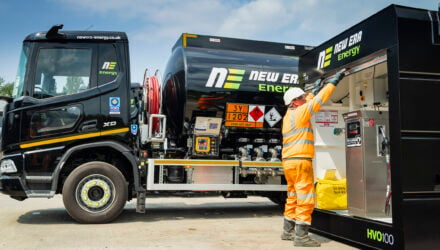
EXPERT: Adrian Bewley, of Enterprise Rent-a-Car
In our latest Expert Blog, Adrian Bewley, Director of Business Rental at Enterprise Rent-A-Car, discusses the role car hire has for businesses…
In recent months, there has been evidence that the UK economy is starting to slowly recover.
One of the most telling factors is that business travel, one of the first areas of corporate expense to be reduced during times of economic turmoil, is back on the rise – not just in the UK but across Europe.
Enterprise’s recent expansion across Europe through a growing network of franchisees has highlighted this issue.
We’ve historically advised a range of businesses on transport policy and strategy for their UK business travel, but now we’re also working with many on an international basis as well.
Given the cyclical nature of the global economy, a lot of businesses will remember dealing with similar (if not as lengthy) periods of downturn in the past.
Hopefully, they will also recall that there are lessons learned during these lean times that can stand them in valuable stead when things start to improve, particularly with regard to their fleet arrangements.
Most obviously, cost control becomes the focus of attention.
When times are tough businesses look for more efficient ways to run their fleets and keep their employees mobile.
That might mean opting for daily rental rather than grey fleet mileage reimbursement, or perhaps leasing vehicles instead of buying them outright.
Importantly, these ways of thinking are just as valuable to the bottom line when markets ease and funding becomes easier to find.
A more cost-effective approach to employee mobility is just as vital now as it was then and many businesses have grasped how this can help make their domestic business transport policies more efficient.
But it’s not just about the obvious ways of cutting cost.
The most recent recession has led a lot of organisations, both private and public sector, to take a long, hard look at not just how their employees travel, but why.
Questions like ‘do you need to make this trip at all?’, ‘could you use videoconferencing instead?’ and ‘how big a car do you actually need?’ have taken centre stage.
The primary issues have become behavioural rather than solely cost-focused.
These questions clearly apply for business trips undertaken within the UK, but as the economy improves it’s worth applying them to international business travel as well.
The majority of work-related journeys overseas require employees to be mobile in those other countries and they can’t always rely on public transport, which usually means renting a car.
The question is whether businesses are as rigorous about managing these costs (and using the lessons they’ve learned during the downturn) as they are in their domestic operations.
On the one hand, their approach to car hire (whether in Croydon or Croatia) needs to be as cost-effective as possible.
On the other, they need to look at why employees are making those trips in the first place and whether they might not be better off taking an alternative approach.
It’s about changing employee thinking and behaviour at a cultural level, particularly for those organisations where business travel might be still be viewed as a ‘perk’ rather than as a business tool.
If you can get employees thinking about where, when, why and how they travel, both within the UK and overseas, it becomes that much easier to encourage new and innovative ways for them to do so – and to get them to realise that maybe they don’t need to make that trip after all.






